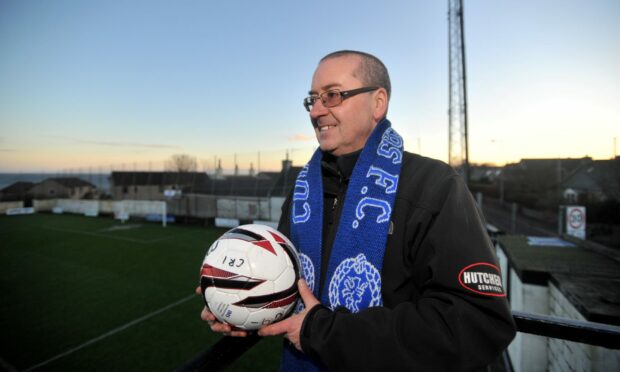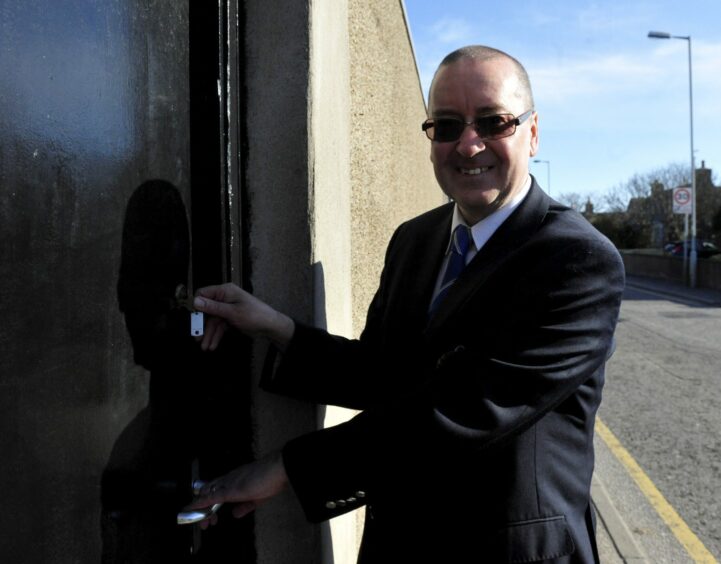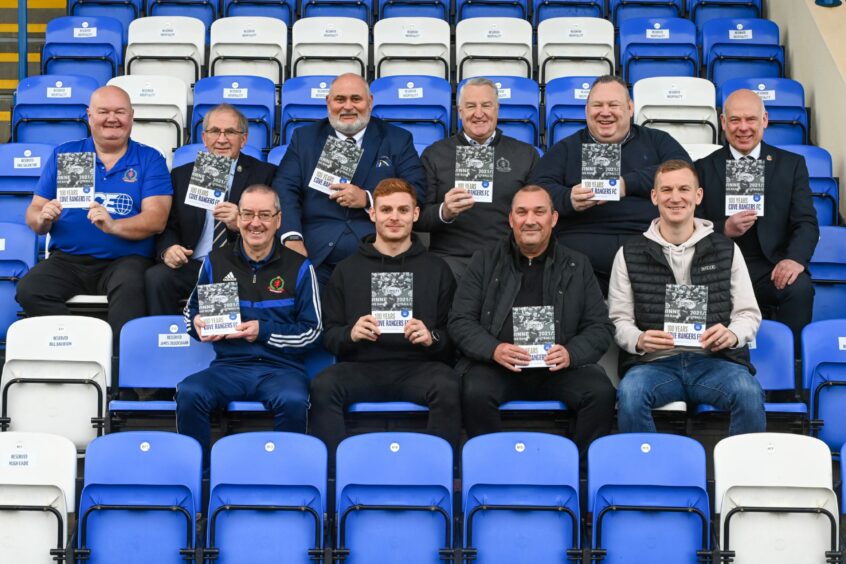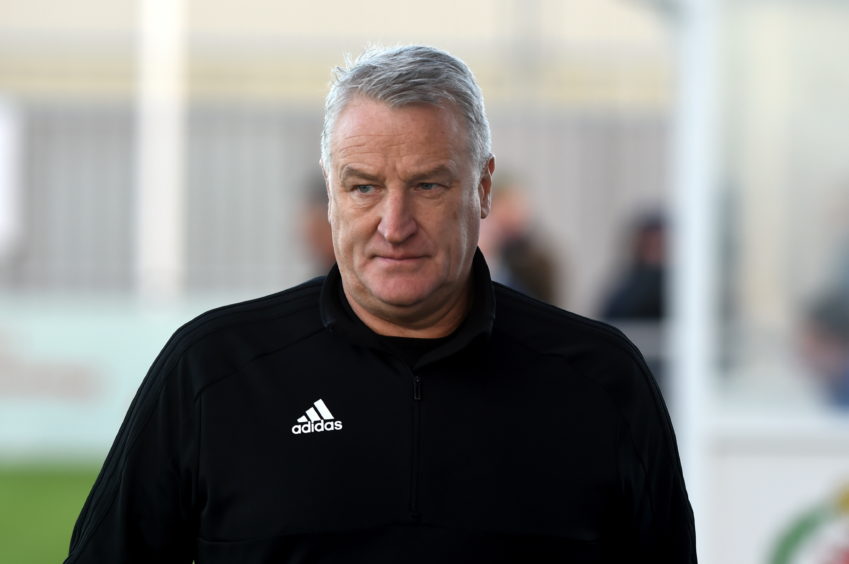From becoming Highland League new-boys to taking calls from Peter Lawwell, Duncan Little has experienced a lot during his time at Cove Rangers.
Little is one of the longest-serving staff members at Cove, having joined in 1986 when they joined the Highland League ranks.
Now they are competing regularly with some of the country’s best clubs, having ascended to the Championship three years after joining the SPFL.
It has been a quick learning curve for Little, who remains one of the safest pairs of hands at the Balmoral Stadium.
“The job has changed massively,” he said. “Everything is bigger, it’s non-stop. You really do feel the step up.
“You felt it going up to League Two, because you had to adapt to how the SPFL wanted to operate things. A lot of their systems differ from the Highland League.
“Once you mastered that, it moves on a little bit going up to League One. Then once you hit the Championship, the media attention from all directions was just phenomenal.
“You now get groundhoppers coming from all corners of the world, just to see the ground.
“We’re now dealing with bigger crowds, broadcasters – we never had that before. The last game we had televised, the Queen’s Park game, there were 45 people up between crew and commentators for the BBC.
“They come up on Thursday to start setting up and it’s a major undertaking. We’d never had that before.
“It’s a bit stressful at times and it can be 24-7. It does take over your life a wee bit.
“I’ve stayed in Cove since 1982, so I watched them in the amateurs and juniors. They were looking for people to help out when they joined the Highland League, so a couple of us came on board.
“You end up getting more and more involved – it takes over your life. It was exciting when I joined and there was a good committee going at the time.”
Transfer deadline day is one of the busiest for any club secretary but thankfully for Little, during Cove’s time in the senior leagues, drama has been thin on the ground.
“Last time we’d used up all our loans, so there was no panic,” said Little.
“January might be different; one or two might leave us and the manager will have his eye on one or two to bring in.
“It’ll be a case of once the transfer window opens, get them in quick. It will be hectic, more at the start than the end, as they tend to do their business earlier in January.
“There was an instance with a keeper we had on loan from Celtic (Ryan Mullen) and they wanted him back. Peter Lawwell was trying to get hold of me at half-nine, 10 o’clock at night.
“I had to come up to the stadium, fill out documents and send them down to Celtic Park, then get them back to sign. It all went through fine but it was totally unexpected.
“He got all his brand new Cove gear and within a week or so, he was away.”
Cove’s journey to this point has not always been easy. Latterly their seasons have been decorated with success, particularly after John Sheran took over in 2004, but there were fallow periods before that.
There were also the repeated attempts to get into the leagues, which were either knocked back (2000 and 2008) or missed out on (2016 and 2018).
“We had to find our feet and it took a while to do that,” he said. “It took longer than we thought it would to win the championship but we got there in the end.
“It took us four years to win our first cup final and there was a gap of another four years before we won the next one.
“When John came in for his first spell, that’s when we started to dominate the Highland League. For about 10 years, I don’t think we were out of the top three.
“We knew John was up for it the moment we interviewed him. He didn’t have success right away but we stuck with him, because we could see he had potential. Then it all started to fall into place.
“Promotion was something that rankled with us for a long time. For years, the likes of East Stirling were bottom of the Scottish leagues but there was nowhere for them to go.
“The pyramid system came in, which we fought for, and we got our opportunity at that. After a couple of failed attempts we finally got there.
“It was mainly Alan McRae and Keith Moorhouse who put the applications (to the league) together – I just supplied some of the information they wanted.
“The first time we knew we weren’t going to get in, when Peterhead and Elgin did. The second time we were closer – it was between us and Annan.
“I think what might have swung it was Gretna had just folded and they needed a club from that area to that come in. Maybe one or two saw another Aberdeen team as a threat.
“I think our old ground held us back as well. We didn’t have the plans in place for here (Balmoral Stadium).
“We just had to sit back and wait for our opportunity.”



